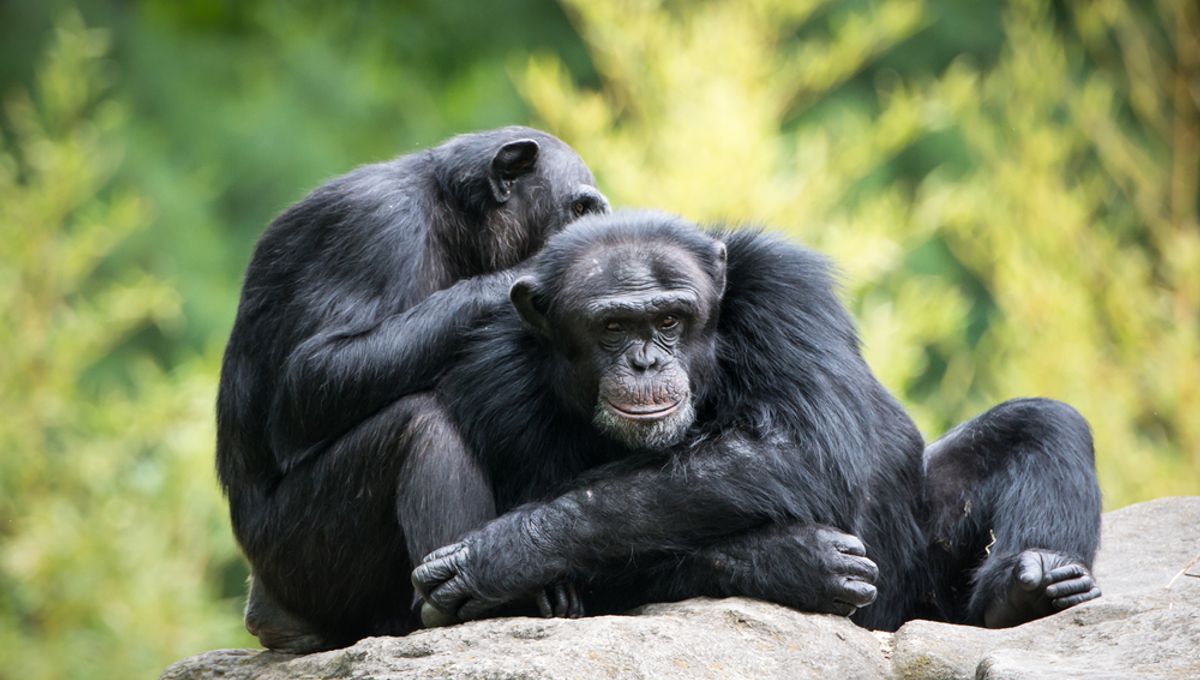
Love may be a distinctly human trait, but a new theory proposes that romance might have evolved from bromances between ancient apes. According to anthropologist Aaron Sandel from the University of Texas at Austin, human romantic relationships resemble the close friendships formed by male chimpanzees, suggesting that the ability to develop close emotional bonds may have arisen in a common ancestor of the two species.
Previously, scientists have sought the evolutionary roots of human love in other monogamous animals. However, according to Sandel, humans aren’t monogamous by nature, and our partnerships are more accurately characterized by deep “pair bonding” than by fidelity.
Other lines of research posit that the ability to form romantic connections evolved from the mother-infant bond present in many mammals. Yet, as Sandel points out, “the behaviors involved in pair bonding and mother-infant bonding differ, including aspects of care, reciprocity, and sexual behavior.”
Seeking the roots of love in our closest living relatives, Sandel notes that chimps don’t form pair bonds with their mates. However, the intimate friendships that arise between male chimpanzees share numerous characteristics with human romance.
“Part of the evolutionary puzzle is that our closest living relatives, the great apes, including chimpanzees and bonobos, do not form enduring bonds with their mates,” explained the researcher in a statement. “So biological anthropologists have assumed that whatever led to pair bonds in humans must have something to do with other uniquely human traits, such as walking upright, or having infants with huge brains, or hunting, or making fire.”
“But what if pair bonds do occur in some of our ape relatives, and we just overlooked them?”
In his analysis, Sandel explains that – much like human lovers – chimp bros display reductions in stress when with their besties and may even get jealous when another male interacts with their closest friend. “This raises the possibility that romantic love in humans finds its origin in same-sex friendships of apes,” he says.
The crux of this theory centers around the question of whether chimpanzee friendships can truly be classified as pair bonds in the same way as human romances. Observing how chimp buddies develop shared calls and remain best friends for many years, Sandel concludes that “a close examination of male-male social relationships in chimpanzees reveals that they are, in fact, pair bonds.”
“I hypothesize that pair bonds in humans rely on the physiological and neural architecture already in place in our ape ancestors for social bonds, especially same‐sex social bonds,” he writes.
At the same time, Sandel recognizes that “only humans exhibit pair bonds with their reproductive partners, suggesting that such relationships evolved later in the human lineage. Thus, same‐sex social bonds were likely present in the human lineage before pair bonds with mates.”
In other words, “homosexual friendships may be the basis of heterosexual romance,” he says.
The study is published in the journal Evolutionary Anthropology: Issues, News, and Reviews.
Source Link: Romantic Love May Have Evolved From Ape Bromance